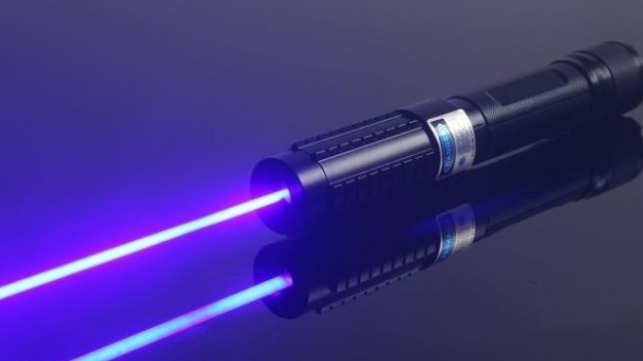
The U.S. Coast Guard has been promising to prosecute anyone who aims a laser pointer at SAR aircraft and vessel crews, and it is following through. On Monday, a man from Port Angeles, Washington pleaded guilty to federal charges stemming from shining a laser pointer at a Coast Guard helicopter aircrew in 2016.
Randall Muck, 35, admitted his guilt on one count of assault on a federal officer, a lesser charge than prosecutors had originally sought. He was sentenced to 90 days of home confinement with electronic monitoring, one year of probation and a $1,000 fine.
Muck shone a green laser light at an MH-65 Dolphin rescue helicopter crew while they were on final approach to Air Station Port Angeles on Sept. 26, 2016. The crew of four returned to base with no injuries reported.
Coast Guard Investigative Service agents honed in on Muck after he made incriminating statements at work. His girlfriend also witnessed the act from their home and provided information to the investigators. Despite these early breaks, the case has been moving through the justice system at a gradual pace: it was referred to federal prosecutors in February 2018 and presented to a grand jury in 2019, and the guilty plea entered Monday came more than five years after the offense.
“These types of incidents can be very dangerous to the safety of our aircrews and disrupts our ability to respond as a search and rescue asset,” said Cmdr. Mark Hiigel, former commanding officer of Air Station Port Angeles. “In this particular case, the aircrew was medically grounded for approximately two hours. This resulted in Naval Air Station Whidbey Island and Sector Columbia River, located in Warrenton, Oregon, covering our area of responsibility until the Port Angeles aircrew was medically cleared.”
Laser pointers can cause danger to aircrews and boatcrews due to glare, afterimage, flash blindness, or temporary loss of night vision. At worst, it can even cause lasting eye damage. Coast Guard flight rules require that aircraft must abort their mission if a laser is shined in the eyes of an aircrew member.
“We need the general public to understand that the dangers of playing with green laser lights goes beyond medical risks to our aircrews, it places all mariners at risk due to delayed response times should they become in distress,” said Cmdr. Hiigel.
Aiming a laser pointer at an aircraft or vessel is a felony crime, and it carries a potential sentence of up to five years in prison.
SOURCE READ THE FULL ARTICLE
https://www.maritime-executive.com/article/u-s-coast-guard-secures-guilty-plea-in-laser-pointer-case